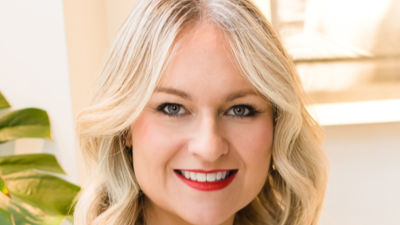Entrepreneurs: Maria Romero and Emanuel Ferrandez
Business name: Sur Chocolates
Industry: Food and drink
Business location: Oxfordshire
Until recently, few British chocolate fans had heard of – let alone tasted – alfajores. This Latin American treat is made of dulce de leche, a delicious caramel concoction, sandwiched between soft biscuits and coated in chocolate. In 2020, Maria Romero began hand-making them at home, launching Sur Chocolates with her husband, Emanuel Fernandez, in February 2020.
Making a change
Working as a chef in five-star hotels and chocolate businesses, and as a consultant to shops and restaurants, Maria always dreamed of having her own business. “I wanted more, I wanted to investigate,” she recalls.
Not only that, creating a collaborative working environment and championing entrepreneurship for women is a responsibility Maria takes seriously. “When my daughter, now nine, was born, I couldn’t just say that she could do anything. I needed to show her,” she explained.
“Maria wanted to change the way that a kitchen works,” adds Emanuel. “To change something, you have to do it yourself.”
Personal investment
Emanuel has 20 years of marketing experience and initially kept his regular job, supporting Maria’s venture as his side hustle. He now works solely on Sur’s marketing, PR, sales, packaging, and accounting. In the early days, his regular income plus personal and family savings meant Sur Chocolates survived without external investment.
“I bought a chocolate melting machine for £300, plus a KitchenAid with my own money, and then I started selling alfajores. After that, we didn’t buy equipment until we could pay for it out of the business,” Maria explains.
» COMPARE: Business loans
Rapid growth
Sur Chocolates launched their Shopify site 20 days before the UK went into lockdown, leaving the couple desperately sending alfajores to anyone who might spread the word. It worked: a glowing review in The Observer Magazine sent orders flooding in and what felt like a disaster became the key to their success. “Because we were ready, we got a spike in sales,” says Emanuel.
Unsure whether the rapid growth would last, the couple converted their garage rather than move Sur Chocolates out to a business premises. “We stayed in the garage for a whole year, but we realised that if we wanted to hire people, we couldn’t do it at home,” says Maria.
The couple switched focus to making Sur Chocolates financially self-sufficient. When they took on a unit on a farm in Oxfordshire, they agreed that would be the last year of personal investment.
“We are not going to keep putting our money in to rescue the cash flow,” says Maria. After registering Sur Chocolates as a limited company and learning about accounting, they have enjoyed two years where alfajores sales have covered the running costs of the company.
» MORE: Do I need an accountant?
Managing costs
Chocolate making is typically seasonal, with Christmas being the busiest period for gifting, followed by Easter and Valentine’s Day. Cautious about their budget, the couple use temporary staff as required. “If we are in low season, we don’t need extra help. We work with agencies instead of hiring someone,” explains Maria.
However, she is keen to take on an apprentice who can support her in the kitchen and learn the craft. “You can go to university and read for a lot of things, but for our type of business, you need to just do it!” says Maria.
Although the running costs of their premises are currently manageable, any price increases make Maria “terribly on edge”. Fortunately, the electricity costs are shared among all the units on the farm, helping ease the pain of rising bills.
While their agricultural location isn’t ideal for passing trade, Emanuel is proud of finding a commercial space near their rural home. Walking or cycling to work helps keep the carbon footprint of Sur Chocolates low.
» MORE: Temp staff aren’t a stop-gap, they’re growth insurance
This article was originally written by Amy Knight in August, 2024. It has since been edited and updated.








